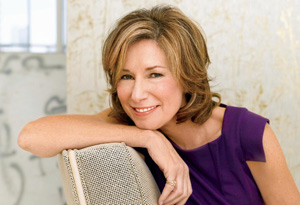
Why It's Okay (Actually, Essential) to Put Yourself First
Almost 30 years ago, my husband's identical twin brother killed himself. He was addicted to drugs. My husband—also addicted, I soon discovered—began a rapid descent along the same ruinous path, forsaking me and our 1-year-old son for grief's dark embrace. I tried to help my husband, became, in fact, almost sick with trying to help him and take care of our baby and our precarious finances. Family and concerned friends phoned me constantly to find out how my husband was doing and how I was holding up. "I can handle this," I told them. "I'll be fine." And compared with my husband, I did seem fine. But the tentacles of worry that had gripped me fitfully when I first discovered his addiction now snaked around me always, tighter and tighter, choking my appetite, my sleep, and my belief that he would ever get well. I would sit up all night waiting for a phone call—from him (I hoped) or from the police (I dreaded)—and then face another full day of chasing around an active toddler. "Keep this up and you will get sick," someone said, "and then who'll take care of you?" There was no one to take care of me. Well, yes, there was: me. And so I did, because I had to. I got help to look after the baby and started going to a support group, and once my husband was recovering in a hospital rehab, I treated myself every visiting day to a fine steak dinner at a nearby pub.
"I think I'll order a steak," I'd say to the baby as he sat in a plastic booster seat, sucking on his bottle. "Baked potato or mashed?" He'd kick his feet and slap the table with his chubby hands. "Good choice," I'd say. "Mashed it is."
Why is it hard for many of us to do things for ourselves before we do for others? Maybe we believe the "good" woman sacrifices herself for her family and, increasingly, for her work. "In terms of our relationships, women often feel they're responsible for everything—which is not a complete misperception," says nationally syndicated columnnist and life coach Harriette Cole. "We are the ones who usually lead the way. But somehow we get from there to the idea that the world won't work if we don't help it along."
Taking on responsibilities that might be well or even better handled by others is one of the ways we begin to lose our balance and slide down the slippery slope from generosity to martyrdom. Because women are likely to be the primary caretakers for husbands and children as well as for aging parents, we have ample opportunity to fall into the pattern of serving the people we love before we serve ourselves. But there are good reasons to be judicious about that. "If you always put someone else first, there's a tendency for others to depreciate you, to lose respect, because respect comes from an understanding that that person has her own wishes, dreams, and desires," says Ethel S. Person, MD, author of Feeling Strong: The Achievement of Authentic Power. Besides, why must there be only one person in first place at a time? "It's possible to have equal concerns for yourself and for loved ones," says Person. "There aren't always conflicting priorities."













